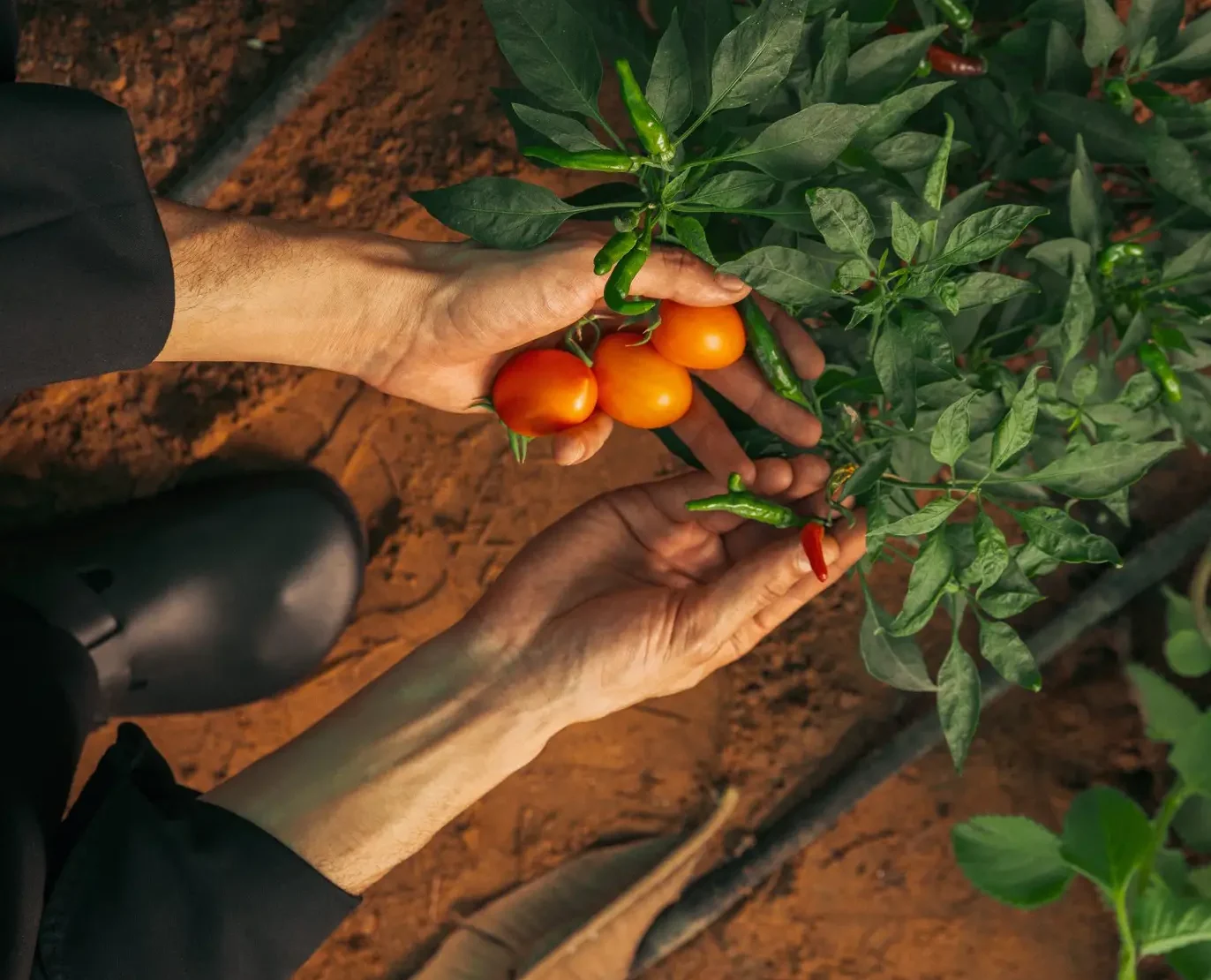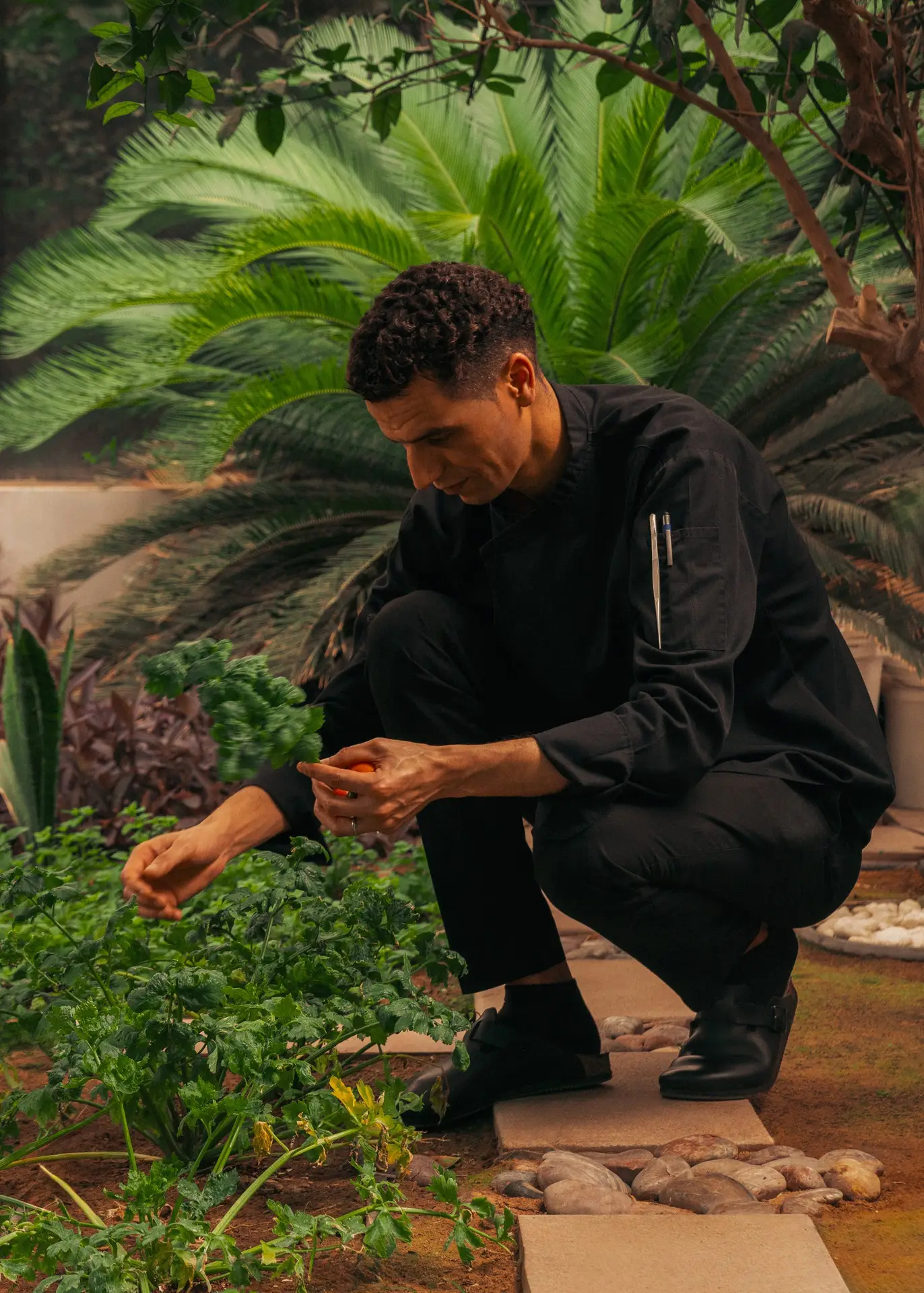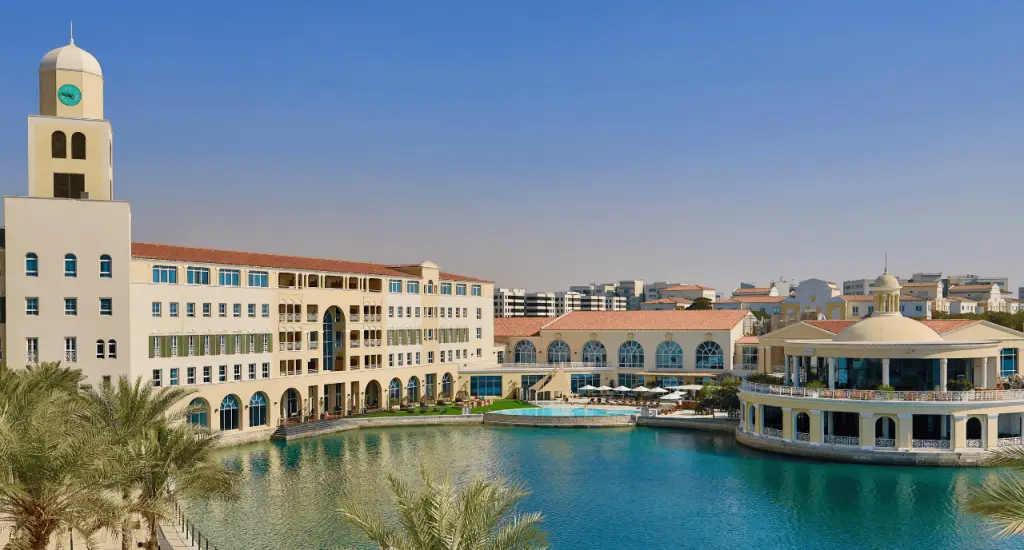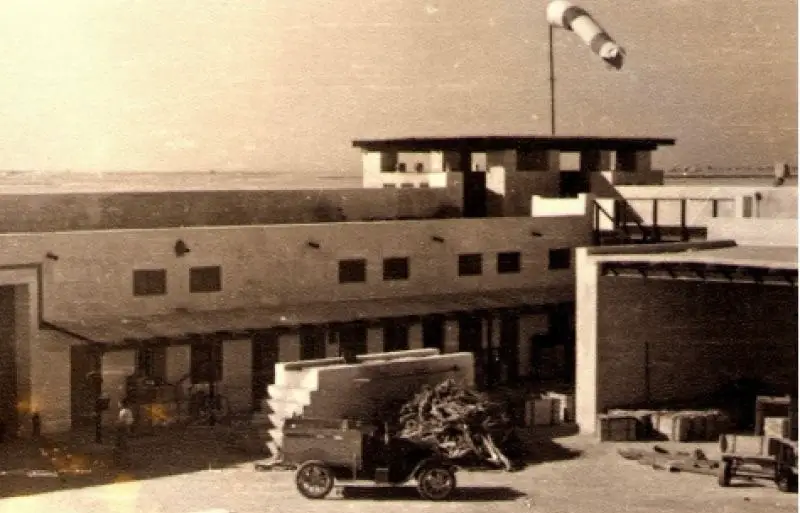
Dubai, UAE: Mövenpick Hotel Apartments Downtown Dubai is setting a new standard for responsible luxury. As travellers increasingly seek experiences that align with their values, this hotel is embedding sustainability into every aspect of its operations, proving that comfort and eco-consciousness can go hand-in-hand. From innovative food waste management to ambitious energy plans and a unique farm-to-table garden, Mövenpick is demonstrating how a hotel can positively contribute to both the environment and its community.
We spoke to Crissy Dee, Hygiene, Quality & Sustainability Manager at Mövenpick Hotel Apartments Downtown Dubai, to find out more about their approach to responsible tourism.
What is Mövenpick’s overall philosophy on responsible tourism?
Crissy Dee: At Mövenpick Hotel Apartments Downtown Dubai, we view responsible tourism as a long-term commitment rather than a trend. It is embedded into the fabric of our operations, influencing how we approach everything from food preparation to energy consumption. Our philosophy is that a hotel can and should contribute positively to the environment and community without compromising on guest comfort or experience.
Being located in one of the world’s most dynamic cities, we recognise the importance of setting a responsible example in hospitality. Whether guests are here for business or leisure, we aim to offer a stay that reflects care, not just in service but in how we interact with the environment. This includes decisions around food waste management, energy efficiency, plastic reduction, and sustainable sourcing. Our recent Green Globe re-certification with a 94% compliance score is a testament to our ongoing efforts.
Responsible tourism, to us, means being mindful, transparent, and forward-thinking, ensuring that every choice we make today helps create a better and more sustainable tomorrow for our guests, our employees, and the wider community.
Tell us a bit about your sustainability initiatives. And, in what ways does Mövenpick integrate these without compromising the guest experience?
Crissy Dee: Sustainability at Mövenpick Hotel Apartments Downtown Dubai is not an isolated department or an occasional campaign; it’s an integral part of our daily decision-making. We’ve approached our environmental initiatives with one goal in mind: to create meaningful impact without disrupting the guest experience. In fact, many of our changes are designed to enhance it.
For instance, our menu now features 50% vegetarian and vegan dishes, created not just to meet dietary preferences, but to celebrate plant-based cuisine in ways that are exciting and satisfying. Our kitchen uses fresh herbs and vegetables grown in our fourth-floor garden, offering an experience that’s both sustainable and distinctly local.
We’ve also installed EV charging stations on the property to support guests who travel responsibly. Meanwhile, behind the scenes, systems like Winnow help us reduce food waste, and our local sourcing strategy ensures that more of what we serve has a lower environmental impact.
The result is a balance where sustainability and service work hand-in-hand. Guests can enjoy a thoughtful, comfortable stay knowing that many small, conscious decisions have been made to support the planet—without compromising quality or convenience.
What is your experience using AI-powered tools like Winnow to tackle food waste? How does this technology help significantly reduce food waste?
Crissy Dee: Food waste is one of the most pressing sustainability challenges in hospitality, and addressing it requires more than good intentions; it needs accurate data and actionable insights. That’s where Winnow has proven to be extremely effective.
By integrating AI technology into our kitchen operations, we’ve gained visibility into what food is being wasted, in what quantities, and at which stages of the preparation process. This goes far beyond manual tracking. The system identifies trends and pinpoints inefficiencies, allowing our culinary team to adapt portion sizes, refine procurement practices, and reduce overproduction.
Since implementing Winnow, we’ve seen a clear and measurable reduction in food waste, which also contributes to lowering our overall carbon footprint. Beyond the environmental impact, it improves operational efficiency and supports our long-term goal of responsible consumption. Importantly, this has all been done while maintaining the quality, variety, and creativity of our culinary offering, showing that technology and tradition can complement each other in a meaningful way.

The hotel launched a 5-year energy plan aiming to cut consumption by 30%. What advanced measures has the hotel taken to drive this ambitious goal?
Crissy Dee: Energy efficiency is a complex but essential aspect of sustainable hotel operations. Following a detailed energy audit, we developed a comprehensive 5-year plan targeting a 30% reduction in energy consumption by 2030. This roadmap includes a mix of digitalisation, infrastructure upgrades, and operational adjustments, all designed to drive long-term efficiency without compromising guest comfort.
Among the most significant measures is the digitalisation of our Energy Management System, which allows us to monitor real-time energy usage and identify opportunities for immediate and long-term improvement. We’re also implementing Delta T optimisation of our chilled water network, a sophisticated approach that fine-tunes temperature differentials to minimise energy use while maintaining optimal indoor conditions.
Additionally, we’ve refined our HVAC controls to ensure that cooling and heating systems are not just responsive but anticipatory, adjusting based on occupancy and demand. These systems are already helping us reduce unnecessary consumption and will continue to evolve as we fine-tune our operations.
This strategy reflects our belief that ambitious goals must be backed by smart investments and clear metrics. It’s not about quick wins; it’s about building a resilient, energy-conscious infrastructure that delivers results over time.
Tell us about the hotel’s unique farm-to-table experience and the 4th-floor garden.
Crissy Dee: One of the most distinctive features of our property is the private garden located on the fourth floor. In a city known for its skyscrapers and speed, this quiet green space offers something rare: a moment of calm and connection to nature. Guests often enjoy this space as a place to relax, reflect, or simply recharge, especially after a busy day in Downtown Dubai.
However, the garden serves more than just an aesthetic purpose. It is an active part of our sustainability efforts and culinary programme. We cultivate a variety of herbs, vegetables, and citrus fruits, including fresh lemons during the winter season, that are used daily in our kitchens. This farm-to-table model not only enhances the freshness and flavour of our dishes, but also shortens the supply chain and reduces our dependence on external resources.
It’s a small-scale ecosystem that reflects our larger environmental values, creating tangible benefits for both our culinary team and our guests. The garden also allows us to showcase how urban spaces, even in a bustling city, can be transformed into sources of nourishment and sustainability.
You are pushing for a plastic-free operation. What are some challenges you face when it comes to this switch? And, what continuous efforts are underway to reduce and eliminate single-use plastics from daily operations?
Crissy Dee: Pushing for a plastic-free operation is something we’re genuinely committed to, but the transition does come with a few key challenges. One of the biggest hurdles is sourcing—while there are sustainable alternatives available, they’re often more expensive or not readily accessible in the local market. We also have to balance guest expectations, especially since many travellers are still used to the convenience of single-use plastics like bottled water or individually wrapped amenities. Ensuring hygiene and safety without plastics, particularly in F&B and housekeeping, adds another layer of complexity. Despite these challenges, we’ve made significant progress. We’ve replaced plastic water bottles with glass in guest rooms, shifted to refillable dispensers for bathroom amenities, and eliminated plastic straws and stirrers entirely. Our teams are trained regularly on sustainable practices, and we actively communicate our efforts to guests to encourage participation. We’re also working closely with suppliers to find innovative alternatives and align with brand-wide initiatives that support the goal of eliminating single-use plastics from all guest experiences. It’s an ongoing journey, but one we believe is essential for a more sustainable future.
In what ways do you encourage travellers or customers to help the hotel retain its plastic-free operations?
Crissy Dee: We believe that guest participation is key to maintaining a successful plastic-free operation, so we take several proactive steps to encourage travellers to join us in our sustainability journey. First, we raise awareness through in-room signage, digital displays, and pre-arrival communication, explaining the reasons behind our plastic-free initiatives and how guests can contribute. For example, we encourage the use of refillable glass water bottles by providing them in guest rooms, replacing the need for single-use plastic bottles. We also promote our towel and linen reuse program as a simple yet impactful way to reduce environmental strain. Sustainable alternatives—such as paper straws or biodegradable takeaway containers—are provided only upon request, helping guests become more conscious of their consumption habits.
In addition, we create opportunities for dialogue during check-in or service touchpoints, allowing our team to briefly highlight our efforts and invite guests to support them. As part of our broader environmental commitment, we also encourage guests to offset their carbon emissions through the Net Zero Carbon Calculator. This initiative empowers travellers to take ownership of their environmental impact and directly support climate-positive projects. Ultimately, our goal is to make sustainability part of the guest experience—seamless, meaningful, and impactful.
How has implementing local sourcing helped the hotel push its sustainability agenda?
Crissy Dee: Local sourcing plays a critical role in how we manage our environmental footprint. By working with suppliers that are geographically closer and aligned with our sustainability values, we reduce the emissions associated with long-distance transportation, limit packaging waste, and support more circular, community-based economies.
Currently, 7% of our purchases are from suppliers identified as environmentally responsible. While this may seem modest at first glance, it’s part of a deliberate and growing effort to shift more of our procurement toward sustainable sources over time. This includes produce, specialty items, and ingredients that are not only fresher but also better aligned with the local climate and seasonality.
This approach also enhances the authenticity of the dining experience we offer guests. They’re not just eating well; they’re tasting something that’s been thoughtfully and responsibly sourced. It’s a practical way to align our purchasing decisions with our values, while also delivering real benefits to both the environment and our guests.
What is your long-term vision for sustainability at Mövenpick Hotel Apartments Downtown Dubai, and what further initiatives can we expect to see?
Crissy Dee: Our long-term sustainability vision is rooted in continuous improvement and measurable impact. We don’t believe in isolated efforts; we believe in building systems that are thoughtful, resilient, and future-focused.
The initiatives we’ve already launched, from our energy reduction roadmap to the Winnow food waste tracking system and our local sourcing strategy, are foundational steps. Going forward, we plan to deepen these efforts. This includes further digitalising operational systems, expanding our partnerships with responsible suppliers, and exploring new technologies that can support resource efficiency.
We are also evaluating ways to reduce and eventually eliminate single-use plastics from our daily operations, and to build stronger connections with our community through environmental education and outreach.
Ultimately, our goal is to be a property that not only meets international sustainability standards but sets a benchmark for others in the region. We want our guests, partners, and team members to feel confident that their stay or collaboration with us is contributing to something meaningful, lasting, and positive.



